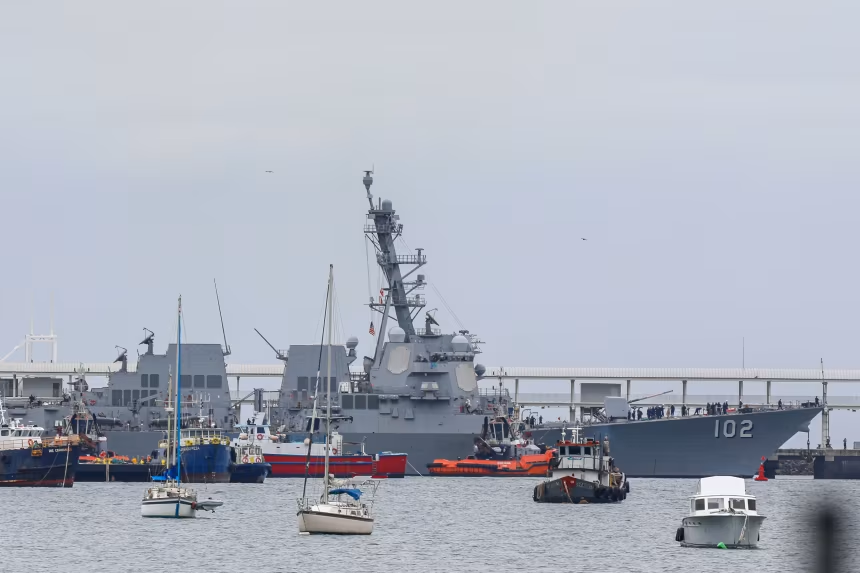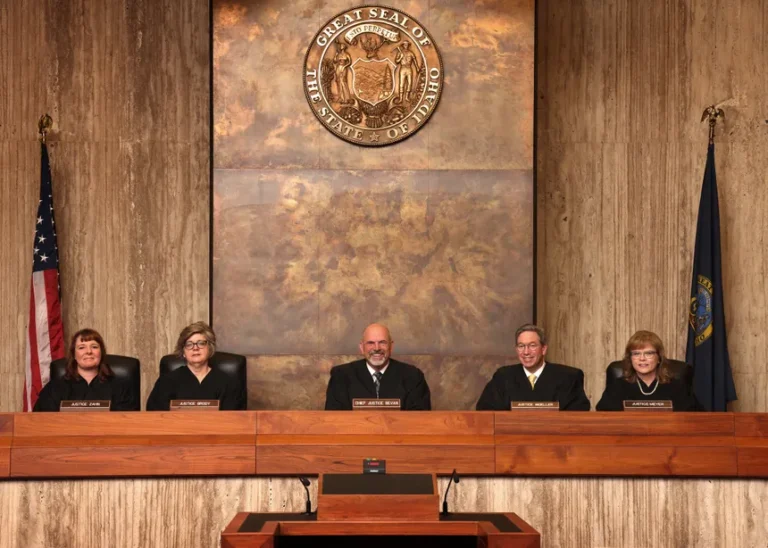
U.S. Military Holding Survivors After Naval Strike
Two individuals are being detained aboard a U.S. Navy vessel following a military strike on what officials described as a drug-trafficking boat in the Caribbean earlier this week.
The incident, confirmed by multiple U.S. officials, marks the sixth strike on vessels allegedly tied to narcotics operations in the region and the first known case where survivors remained alive after the attack.
The USS Sampson, a Navy destroyer currently operating in Latin American and Caribbean waters, is reported to be holding the detainees. Officials have not yet stated what will happen to the men or under what legal authority they are being held.
Administration Response
President Donald Trump addressed questions about the operation during a White House event, stating that U.S. forces had “attacked a drug-carrying submarine built for transporting large quantities of narcotics.”
He emphasized that those on board were not “innocent,” citing the vessel’s specialized design as evidence of criminal intent.
White House officials have not commented further, and U.S. Southern Command, which oversees operations in the region, referred all inquiries back to the administration.
Legal Questions Over Military Detention
Legal analysts say the case raises ongoing questions about the scope of presidential authority under Article II of the U.S. Constitution.
According to Brian Finucane, a former State Department legal advisor, the administration’s argument that it can target and detain so-called “narco-terrorists” under executive authority alone remains legally untested.
Congress has not formally authorized military conflict against drug traffickers, and courts have yet to determine whether detaining individuals under these circumstances aligns with constitutional or international law.
If the detainees pursue a habeas corpus petition, it could force a judicial review of the administration’s rationale and shed light on the legal framework guiding these strikes.
Broader Anti-Drug Campaign
The strike is part of a broader U.S. effort to curb maritime drug trafficking in the Caribbean and Latin America, where naval and aerial patrols have increased significantly since mid-2025.
Military officials say the operations target heavily armed trafficking networks that often use semi-submersible or fully submersible vessels to evade detection.
The long-term strategy and next steps regarding detainees from these operations remain unclear.
Idaho Perspective
While the strike occurred thousands of miles from Idaho, the state has seen its own rise in narcotics-related enforcement activity, particularly along major transportation routes.
Officials in the Idaho State Police have previously cited the importance of federal interdiction efforts abroad as part of a “comprehensive approach to reducing drug inflow into inland states.”
Related Coverage
- Idaho News – https://idahonews.co/idaho-news-3/
- National News – https://idahonews.co/national-news/





